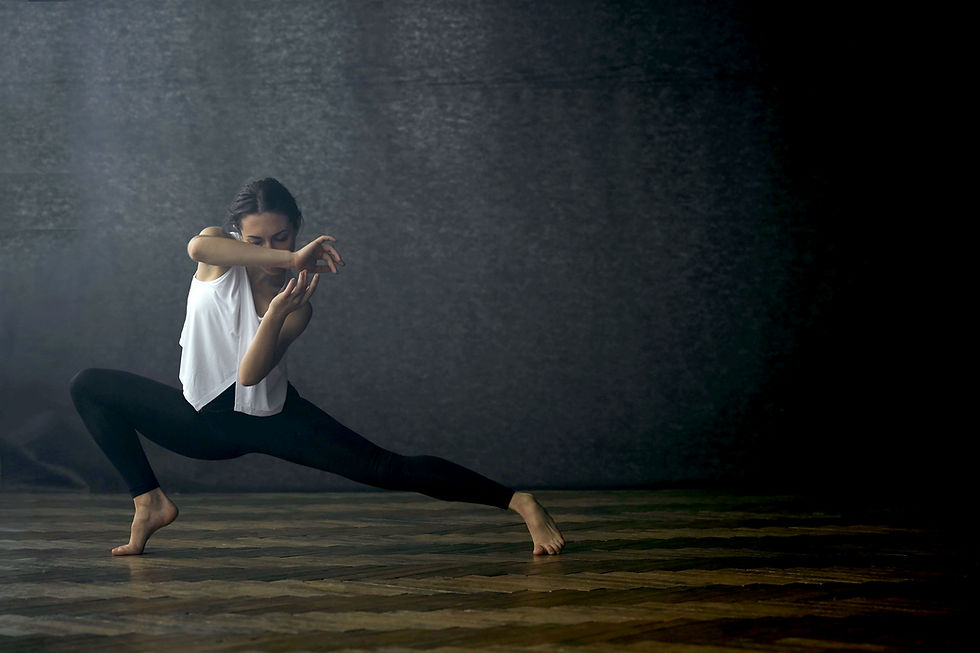Hysterical: Shocking Findings from Government Inquiries into Women's Healthcare
- Grace Carter

- Aug 12, 2024
- 3 min read
First published: 12/08/2024

A new podcast episode from SBS News, titled 'Hysterical', sheds light on the pervasive gender bias experienced by women in Australia's healthcare system. The episode, which delves into findings from multiple government inquiries, reveals the troubling extent to which women’s healthcare needs are overlooked, dismissed, or inadequately addressed.
According to the federal government's End Gender Bias survey, more than two-thirds of women in Australia report experiencing gender bias within the healthcare system. The survey, which saw responses from over 2,500 women, forms part of the government's broader efforts to tackle medical misogyny. As Assistant Minister for Health Ged Kearney explained at the National Women’s Health Summit in March, the results were alarming: “Consistent themes included feeling dismissed or disbelieved, being stereotyped as hysterical, a drama queen, or even shockingly as a slut.”
The bias women face in healthcare is not only pervasive but also dangerous. An inquiry into women's pain, led by the Victorian Government Department of Health, highlighted that women generally endure more recurrent, severe, and long-lasting pain than men. Despite this, women’s pain is often dismissed by health practitioners, who frequently attribute their symptoms to menstruation, lifestyle factors, or even accuse them of faking it. The SBS podcast underscores the harmful implications of these biases, with Patricia — a pseudonym for one of the women featured—sharing her distressing experiences of pain being sidelined in favour of fertility preservation during her healthcare journey.
Patricia’s story is far from unique. In the 'Hysterical' episode, she recounts her long battle with menstrual and pelvic pain, which began at just 15 years old. Despite undergoing ovarian drilling at 19, she describes a healthcare environment where “the comfort was secondary to the baby factory.” This sentiment echoes throughout the podcast, highlighting a systemic issue where women’s health and pain management are deprioritised in favour of reproductive outcomes.
The podcast also raises critical questions about whether trans and gender-diverse experiences are being sufficiently included in these conversations. In the Victorian 2023 Women’s Health survey, which sparked the ongoing inquiry into women’s pain, only 1.2 percent of participants identified as non-binary, and 4.3 percent identified as 'other.' The survey’s language, which frequently referred to 'women' and 'girls,' attempts to be inclusive, but questions remain about whether this inclusivity is fully realised in practice.
Dr. Joe Latham, an Australian Research Council Fellow at Deakin University, explained the challenges faced by trans and gender-diverse individuals in navigating the healthcare system. “It’s quite common to feel like you need to withhold the information about your sexuality or your gender in those encounters for fear of less discrimination, but also just not getting very good care,” Dr. Latham noted, highlighting the pervasive fear and actual instances of discrimination faced by these communities.
The podcast also touches on the additional barriers confronted by women with disabilities, as described by Nadia Matiazzo, CEO of Women with Disabilities Victoria. She emphasised that health conditions for women with disabilities often go undiagnosed or untreated due to the assumption that these issues are simply part of their overall disability, rather than separate and treatable health concerns. This oversight contributes to significant isolation and barriers to daily life, including employment and community participation.
Further complicating the issue is the intersectionality of pain and cultural experiences. Dr. Adele Murdolo, Executive Director of the Multicultural Centre for Women’s Health, stresses that pain is experienced and expressed differently across cultures. She advocates for broader research and education around these cultural differences to ensure that healthcare is appropriately tailored to all women, regardless of their background.
The Victorian Health Minister, Mary-Anne Thomas, acknowledged these challenges and noted that the ongoing pain inquiry is part of a $153 million commitment to women’s health. “It was certainly our view that women's pain was not getting the attention that it deserved, nor was it getting the funding that it needed,” she told SBS News.
As the podcast episode concludes, the urgency for systemic change in women’s healthcare becomes clear. For women like Patricia, who has spent years battling for adequate pain management, the inquiries and the voices they elevate represent a potential turning point. “We are in a stage where the reason we have so many inquiries happening, with so many things that purely affect a women-based population, is because we are saying it’s enough,” Patricia asserts, reflecting the broader sentiment captured in 'Hysterical'.
As Australia grapples with the deep-seated sexism embedded within its healthcare system, the voices highlighted in this podcast underscore the critical need for reform. The episode serves as both a call to action and a reminder of the human cost of inaction.
In the next episode of 'Hysterical', the podcast will explore the issue of birth trauma, asking why, in a privileged country like Australia, women are still experiencing coercion and trauma during childbirth.




Comments